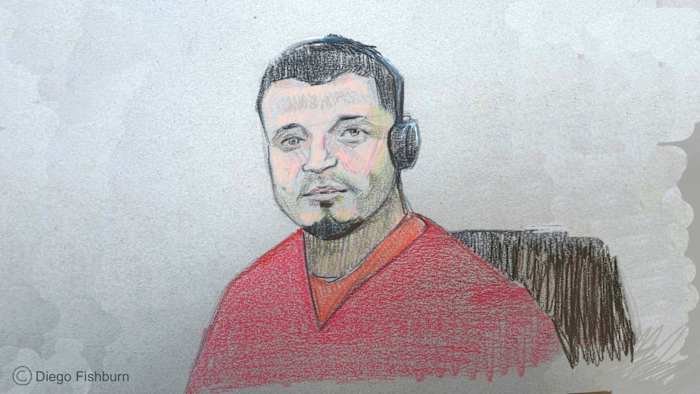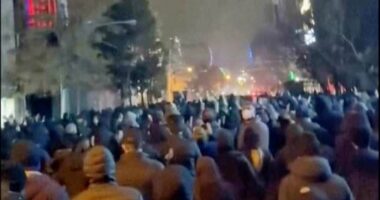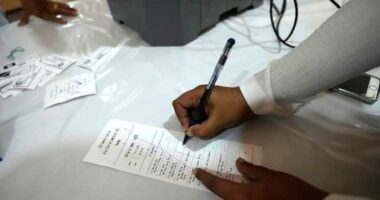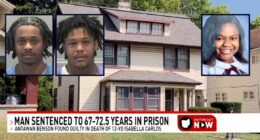Share this @internewscast.com
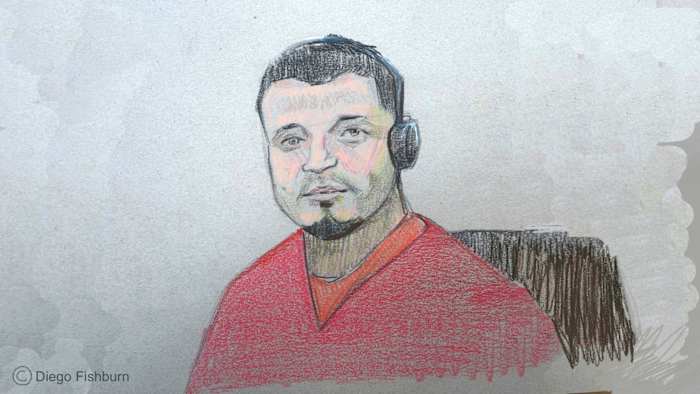
WASHINGTON – According to court documents submitted on Wednesday, Kilmar Abrego Garcia claimed he endured vicious beatings, extreme sleep deprivation, and psychological torture in the infamous El Salvador prison where he was deported by the Trump administration in March.
He reported being continuously kicked and struck upon his arrival, resulting in bruises and lumps covering his body by the next day. He stated that he and 20 others were compelled to kneel all night, with guards assaulting anyone who collapsed.
Abrego Garcia, who was residing in Maryland, was mistakenly deported, becoming a focal point in President Donald Trump’s stringent immigration policies. The newly revealed details about his imprisonment in El Salvador have been included in a lawsuit his wife filed in a Maryland federal court following his deportation.
The Trump administration has asked a federal judge in Maryland to dismiss the lawsuit, arguing that it is now moot because the government returned him to the United States as ordered by the court.
A U.S. immigration judge in 2019 had barred Abrego Garcia from being deported back to his native El Salvador because he likely faced persecution there by local gangs who had terrorized him and his family. The Trump administration deported him there despite the judge’s 2019 order and later described it as an “administrative error.” Trump and other officials have since doubled down on claims Abrego Garcia was in the MS-13 gang.
On March 15, Abrego Garcia was deported to El Salvador and sent to the country’s mega-prison known as the Terrorism Confinement Center, or CECOT.
In the new court documents, Abrego Garcia said detainees at CECOT “were confined to metal bunks with no mattresses in an overcrowded cell with no windows, bright lights that remained on 24 hours a day, and minimal access to sanitation.”
He said prison officials told him repeatedly that they would transfer him to cells with people who were gang members who would “tear” him apart. Abrego Garcia said he saw others in nearby cells violently harm each other and heard screams from people throughout the night.
His condition deteriorated and he lost more than 30 pounds in his first two weeks there, he said.
Sen. Chris Van Hollen, a Maryland Democrat, visited Abrego Garcia in El Salvador in April. The senator said Abrego Garcia reported he’d been moved from the mega-prison to a detention center with better conditions.
The Trump administration continued to face mounting pressure and a Supreme Court order to return him to the United States. When the U.S. government brought back Abrego Garcia last month, it was to face federal human smuggling charges in Tennessee.
Attorney General Pam Bondi said at the time of Abrego Garcia’s return that this “is what American justice looks like.” But Abrego Garcia’s attorneys called the charges “preposterous” and an attempt to justify his mistaken expulsion.
A federal judge in Tennessee has ruled that Abrego Garcia is eligible for release — under certain conditions — as he awaits trial on the criminal charges in Tennessee. But she has kept him in jail for now at the request of his own attorneys over fears that he would be deported again upon release.
Justice Department spokesman Chad Gilmartin told The Associated Press last month that the department intends to try Abrego Garcia on the smuggling charges before it moves to deport him again.
Separately, Justice Department attorney Jonathan Guynn told a federal judge in Maryland last month that the U.S. government plans to deport Abrego Garcia to a “third country” that isn’t El Salvador. Guynn said there was no timeline for the deportation plans. But Abrego Garcia’s attorneys cited Guynn’s comments as a reason to fear he would be deported “immediately.”
Copyright 2025 The Associated Press. All rights reserved. This material may not be published, broadcast, rewritten or redistributed without permission.
